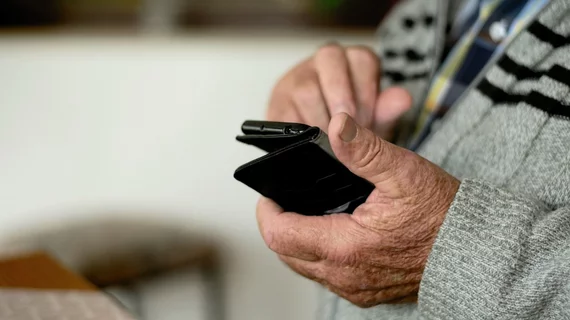App detects worsening heart failure for personalized case management
Researchers have demonstrated a smartphone application that monitors known heart failure by listening to patients’ voices for 30 seconds a day.
The app works by listening for subtle speaking patterns indicative of fluid in the lungs, the most common symptom of deteriorating cardiac function in these patients.
The research team presented its work online June 19 to the European Society of Cardiology, which has posted a news release describing the development.
Professor Offer Amir of Israel’s Hadassah Medical Centre and colleagues tested the system on 40 inpatients who’d been admitted with acute heart failure and lung congestion. The participants used smartphones to record five sentences two times—upon admission and just before discharge.
Amir and team found the app successful at distinguishing between pre-treatment (congested) and post-treatment (uncongested) states.
“Those with early signs of lung congestion could receive adjustments to their treatment, thereby preventing the need for hospitalization,” Amir says. “As more speech samples are obtained, the model becomes increasingly sensitive to changes.”
The study was funded by an Israeli AI startup, Cordio Medical, which developed the technology.

